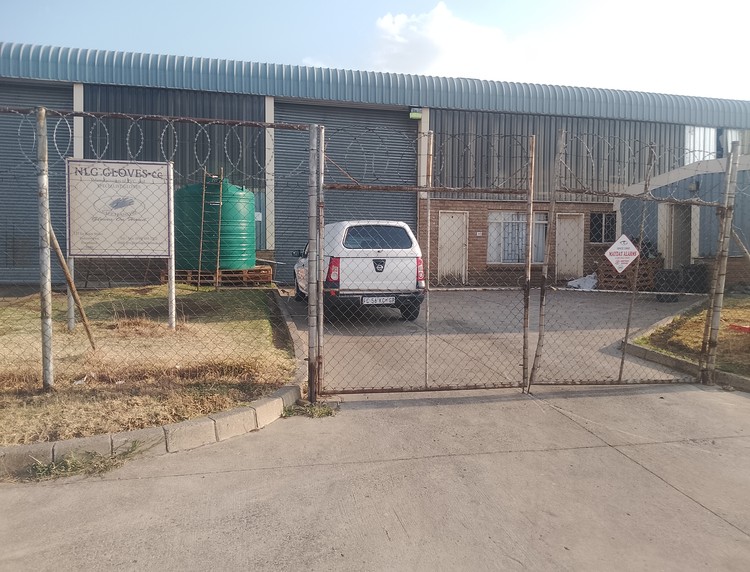Factory forced to relocate from Free State to Gauteng because of electricity outages
NLG Gloves has been in Harrismith since 1993 and employed 71 people from surrounding communities.
Staff at NLG Gloves were distraught on Wednesday when the company announced that it would be relocating to Carletonville in Gauteng due to unreliable power supply in Harrismith under the Maluti-a-Phofung local municipality in the Free State. Photo: Tladi Moloi
- A glove making factory in Tshiame, Harrismith, which employs more than 70 workers, has had to make the difficult decision to relocate to Carletonville, more than three hours drive away, to save the business.
- This is due to the unreliable power supply in the Maluti-a-Phofung local municipality.
- A senior employee, who asked not to be named, says the company has said that workers willing to relocate or travel to the new location will remain employed. But most of them have homes and families in the town and are unlikely to travel back-and-forth to a neighbouring province of Gauteng.
Businesses across Harrismith in the Free State have been battling to stay afloat as the Maluti-a-Phofung local municipality has had crippling electricity outages in recent weeks.
As a result of this, one factory in Tshiame, which employs more than 70 workers, has had to make the difficult decision to relocate to a neighbouring province to save the business due to the unreliable power supply.
Last month GroundUp reported that villages in and around Harrismith as well as the Maluti-a-Phofung Special Economic Zone, had been without power for more than a week after thousands of litres of oil were apparently stolen from the Greenland substation in Tshiame. But many residents and business owners complained that there were frequent power outages.
While electricity has since been restored to most parts of the municipality, staff at NLG Gloves were distraught on Wednesday when the company announced that it would be relocating to Carletonville in Gauteng.
The industrial glove manufacturing factory has been operating in the Tshiame community since 1993 supplying mines nearby and employs 71 workers from surrounding communities.
A senior employee, who asked not to be named, told GroundUp that employees had left early that day because they were distraught by the news. According to the worker, the company has said that those willing to relocate or travel to the new location will remain employed. But most of them have homes and families in the town and are unlikely to travel back-and-forth to Gauteng.
He said they were told that the factory would be closing at the end of September.
“We have big machines that need electricity and every time there was no power, we had to wait. So, imagine every time when the customer needs orders, we are always using electricity issues as an excuse, so it looks like we are failing,” he said.
Another employee, Malesedi Moloi, said, “I’ve been with the company for 11 years. I am not willing to relocate because I am a mother of two. If I leave it means I have to get someone to look after [my daughters] and that person has to be paid.”
Thabo Kessah, spokesperson for the municipality, said that it was “unfortunate that NLG Gloves is leaving at the time when the Distribution Agency Agreement (DAA) signed with Eskom is being implemented”.
According to Kessah, the municipality’s agreement with Eskom has only recently been implemented as Eskom and municipality were setting up a Project Management Office to deal with matters like customer service, secondment of municipal employees, among other things.
The process of stabilising supply has already started in Kestell and will, in the next few days, start in Harrismith and later Qwaqwa, said Kessah.
Support independent journalism
Donate using Payfast

Next: Pravin Gordhan was that rare thing: an honest politician
Previous: SIU takes aim at ballooning dodgy medical litigation that is costing the government billions
© 2024 GroundUp. This article is licensed under a Creative Commons Attribution-NoDerivatives 4.0 International License.
You may republish this article, so long as you credit the authors and GroundUp, and do not change the text. Please include a link back to the original article.
We put an invisible pixel in the article so that we can count traffic to republishers. All analytics tools are solely on our servers. We do not give our logs to any third party. Logs are deleted after two weeks. We do not use any IP address identifying information except to count regional traffic. We are solely interested in counting hits, not tracking users. If you republish, please do not delete the invisible pixel.

